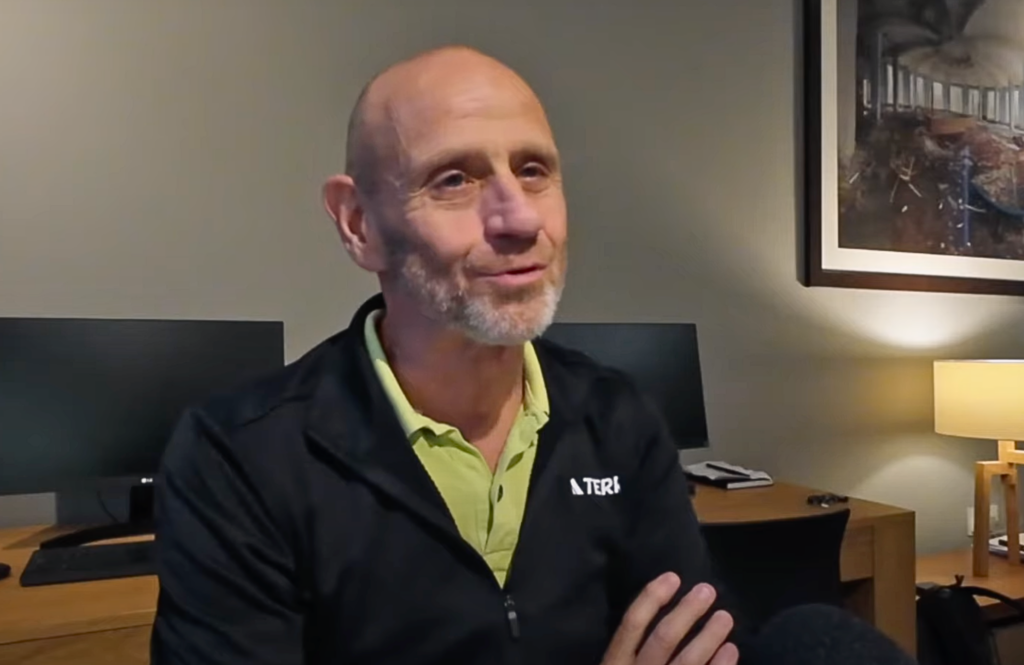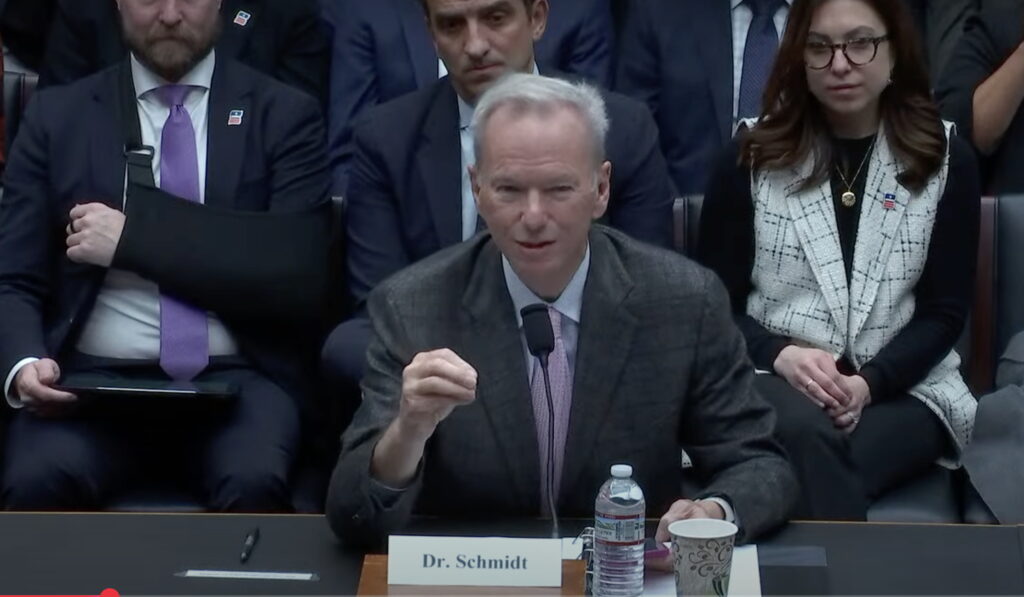At the “Media & Stakeholder Relations: Hydraulic Fracturing Initiative 2011” conference last week in Houston, Matt Pitzarella, Director of Corporate Communications and Public Affairs at Range Resources, revealed in his presentation that Range has hired Army and Marine veterans with combat experience in psychological warfare to influence communities in which Range drills for gas.
As CNBC reported, Range spokesman Matt Pitzarella boasted to the audience:
“[“…looking to other industries, in this case, the Army and the Marines. We have several former PSYOPs folks that work for us at Range because they’re very comfortable in dealing with localized issues and local governments. Really all they do is spend most of their time helping folks develop local ordinances and things like that. But very much having that understanding of PSYOPs in the Army and in the Middle East has applied very helpfully here for us in Pennsylvania.”
[**Listen: MP3**]
At that same conference, Matt Carmichael, External Affairs Manager at Anadarko Petroleum Corporation, suggested three things to attendees during his presentation:
“If you are a PR representative in this industry in this room today, I recommend you do three things. These are three things that I’ve read recently that are pretty interesting.
“(1) Download the U.S. Army/Marine Corps Counterinsurgency Manual [audible gasps from the audience], because we are dealing with an insurgency. There’s a lot of good lessons in there, and coming from a military background, I found the insight in that extremely remarkable. (2) With that said, there’s a course provided by Harvard and MIT twice a year, and it’s called ‘Dealing With an Angry Public.’ Take that course. Tied back to the Army/Marine Corps Counterinsurgency [Field] Manual, is that a lot of the officers in our military are attending this course. It gives you the tools, it gives you the media tools on how to deal with a lot of the controversy that we as an industry are dealing with. (3) Thirdly, I have a copy of “Rumsfeld’s Rules.” You’re all familiar with Donald Rumsfeld – that’s kind of my bible, by the way, of how I operate.”
[**Listen: MP3**]
Carmichael is also the former Senior Manager of External Communications for Kellogg, Brown and Root (KBR), a subsidiary of Halliburton, which at one point had over 15,000 mercenaries placed in Iraq, according to the Los Angeles Times.
The Counterinsurgency (COIN) Field Manual [PDF] devotes an entire chapter to PSYOPs, confirming its utility as a major element of a counterinsurgency campaign. The COIN manual is the current U.S. military doctrine in both Iraq and Afghanistan.
USE OF PSYOPs PSYCHOLOGICAL WARFARE ON U.S. CITIZENS IS ILLEGAL
PSYOPs is the military short-hand for “psychological operations,” used extensively in U.S. wars abroad, including in Iraq and Afghanistan. Much of this work is carried out by Army reserve personnel, who travel from village to village dropping leaflets and offering financial incentives in an attempt to convince residents not to support the insurgency. This often entails using psychological tactics to “win hearts and minds.”
As the Pittsburgh Post-Gazette reported about PSYOPs in Iraq:
“…reservists in psychological operations typically do communications with the local folks. In the beginning, they distribute millions of leaflets and do loudspeaker broadcasts. They also spend a lot of time talking with people.”
The use of PSYOPs by active military personnel on U.S. citizens is illegal and a violation of the Smith-Mundt Act of 1948, as Michael Hastings of Rolling Stone explained in his February 2011 investigative story uncovering the fact that U.S. military generals had used PSYOPs on members of Congress. The Smith-Mundt act “was passed by Congress to prevent the State Department from using Soviet-style propaganda techniques on U.S. citizens.”
Hastings wrote in Rolling Stone:
“According to the Defense Department’s own definition, psy-ops – the use of propaganda and psychological tactics to influence emotions and behaviors – are supposed to be used exclusively on “hostile foreign groups.” Federal law forbids the military from practicing psy-ops on Americans, and each defense authorization bill comes with a “propaganda rider” that also prohibits such manipulation. “Everyone in the psy-ops, intel, and IO community knows you’re not supposed to target Americans,” says a veteran member of another psy-ops team who has run operations in Iraq and Afghanistan. “It’s what you learn on day one.” (emphasis added)
JAMES CANNON – RANGE PSYOPS SPECIALIST IN PA
Range’s dominance in the Marcellus fracked gas rush is hardly surprising – Range Resources was the first company to begin drilling for unconventional gas in the Marcellus Shale, back in 2004. Range says on its website that “In 2011, Range is directing 86% of its capital budget toward development drilling in the region.”
It certainly has every reason to protect that investment, but hiring an Army PSYOPs specialist?
Range Resources’ Local Government Relations Manager in Pennsylvania is James Cannon, a former Marine and Army Reservist whose unit conducted PSYOPs during Operation Iraqi Freedom. According to his personal website and LinkedIn page, Jim Cannon says he is still an active reservist with the 303rd Psychological Operations Company, who served under the US Army Special Operations Command (USASOC) as part of Operation Iraqi Freedom.
One of his colleagues in the 303rd Psychological Operations Company discussed the unit’s PSYOP experiences in Iraq in April 2003. The Pittsburgh Post-Gazette reported, “Since October [2003], a massive public information campaign has been under way in Iraq. American and British planes have dropped 36 million leaflets in Iraq. They have distributed scores of solar-powered and hand-crank short wave radios with instructions for tuning in to Arabic-language broadcasts that urge cooperation with coalition troops. Trucks with loudspeakers have been used to spread the message that America is in Iraq to liberate, not to occupy the nation.”
What if the same techniques that the Army used to weaken the insurgency in Iraq and Afghanistan are being used by the gas industry to intimidate U.S. citizens in Pennsylvania? Of course they wouldn’t need the Black Hawk helicopters, the U.S. Postal Service can drop letters just fine. But the tactics of using financial incentives and disseminating propaganda designed to pit neighbor against neighbor?
Jim Cannon’s company Range Resources has deployed these PSYOP-inspired tactics in Pennsylvania, sending threatening letters to the citizens of Mt. Pleasant Township in hopes of dividing the community, and attempting to sway the township supervisors to do industry’s bidding.
As best documented by This American Life, Range has sent threatening letters to residents of Mount Pleasant, PA, where citizens were concerned about the impacts of natural gas drilling on their community. The Pittsburgh Post-Gazette also covered the Range Resources letters controversy, and included PDFs of the actual letters sent by Range to Mt. Pleasant residents.
The first letter, sent in April 2011 to all Mt. Pleasant Township residents [PDF], used a ‘winning hearts and minds’ style approach, touting the company’s local investments:
“Over those years, we have become a part of your community. From millions of dollars in corporate giving to tax-free road improvements, Range has strived to be a good neighbor and community partner.”
Range sent a second letter around the same time, but only to property owners with gas leases. It appears to seek to divide the community, by threatening that the company might pull out of the town if it didn’t get its way, essentially striking fear into residents that such a decision would hurt their lease income and encouraging them to pressure local leaders to keep Range happy. The second letter [PDF] states:
“Throughout the state, Range is held up as the model for the natural gas drilling industry; everywhere, that is, except Mt. Pleasant. While we have made every effort to establish a positive and robust working relationship with your elected officials, our attempts continue to be rejected. As a result, we are sending this communication to inform you that we have revised our future long-term plans in the Township due to continuing difficulties with your Township supervisors and their unwillingness to work with us. As it stands, those revisions may prove detrimental to leaseholders.
Ultimately we may be forced to shift activity to other, more cooperative townships.The shifting of operational activities will inevitably result in the shift of related activities, including the purchase of goods, services and food to other, more cooperative communities.”
At issue was the company’s distaste for a local ordinance banning temporary housing, which blocked Range from erecting bunkhouses at drill sites for its employees. Matt Pitzarella suggested the company might sue or leave the town.
“If the township continues to push this issue, we may have to challenge it in court or walk away,” Mr. Pitzarella told the Post-Gazette.
Range’s aggressive pressure tactics created a backlash in the community, as the Post-Gazette story reported:
“We are outraged,” said Dencil Bachus, a Mount Pleasant resident and coordinator of a citizens committee that advised the township on the Marcellus ordinance. “This is an effort by Range Resources to divide a community on the eve of a decision on an ordinance that affects them directly. It’s an attempt by the company to get what they want rather than operate within the [township government] process. It’s a divide-and-conquer public relations strategy.”
Other area residents have also experienced Range’s intimidation tactics first hand. Ron Gullah, Hickory resident whose pond was contaminated near a Range drilling operation, says,
“Range Resources operates on intimidation. They have intimidated everyone and have taken advantage of this rural area.”
Another Mt. Pleasant resident, who wished to remain anonymous for fear of reprisal, told DeSmogBlog that:
“What’s going on here, it’s kinda like Love Canal. The intimidation from these corporations is astounding to me. I don’t know how they’re allowed to get away with it. I’d like to see them get nailed.”
OTHER POSSIBLE EXAMPLES OF PSYOPs-INSPIRED INTIMIDATION
One indicator of PSYOPs type behavior by the gas industry occurred in April 2011, when an Ohio woman found a binder in her driveway, “Talking Points for Selling Oil and Gas Lease Rights.” The source of the document was never identified, so its authenticity is not confirmed, however the manipulative techniques mentioned in the binder are consistent with PSYOPS tactics.
The focal point of a well-run PSYOPs campaign is to reward those who go along with the mission, and punish those who do not. Other “winning hearts and minds” PSYOP-like tactics include industry sponsorship of county fairs, sponsorship of child domestic abuse centers, and donating money to other community projects.
This all comes roughly a year after the Pennsylvania Department of Homeland Security, then headed by James Powers, a man with three decades of military experience and formerly a professor at the Joint Special Operations University and the U.S. Army War College, was caught spying on anti-fracking activists, via an Israel-based private security firm called the Institute of Terrorism Research and Response.
HOW WIDESPREAD IS THIS PRACTICE IN THE GAS INDUSTRY?
According to a March 2011 story appearing in the Pittsburgh Business Times, Range Resources “estimates that veterans account for about 10 percent of its employees.” That is an impressive statistic, and many of the skills learned in the military would naturally come in handy in oil and gas operations. However, legitimate questions arise when companies like Range Resources tout their hiring of military PSYOPs specialists to deploy these tactics on American citizens.
Is Range the only industry player deploying veterans with PSYOPs experience, and using these propaganda techniques in U.S. communities? The company’s leadership role in the Marcellus Shale fracking industry suggests that this practice is likely more widespread.
A November 2010 press release from the Marcellus Shale Coalition (MSC), a Pennsylvania lobbying association that promotes unconventional gas development, shows that scores of veterans now work for the natural gas industry, at corporations ranging from Chesapeake Energy, Anadarko, Atlas Energy, and more. The Coalition includes Exxon (XTO), Shell, Statoil, Halliburton, Chesapeake, and others.
The Chairman of the Marcellus Shale Coalition is Ray Walker, Senior Vice President of Range Resources. Walker’s Range colleague Matt Pitzerella chairs MSC‘s communications Subcommittee, and also is sub-chairman of America’s Natural Gas Alliance (ANGA), another major gas industry PR outfit promoting fracking and unconventional gas development.
Has Range promoted the use of PSYOPs to these other companies? Do the Marcellus Shale Coalition and ANGA officially sanction its use?
RANGE AND THE GAS INDUSTRY PROMISE TRANSPARENCY AND ACCOUNTABILITY IN PUBLIC, BUT DOES THIS PSYOPS ACTIVITY MEET THAT PROMISE?
Engaging in PSYOPs runs contrary to the promises that Range Resources makes to the public about the company’s behavior.
For example, Matt Pitzarella, in a September 2011 interview, stated, “We need to engage, communicate, be transparent, accessible and accountable.”
John Pinkerton, CEO of Range Resources stated in a June 2011 press release, “Along with all of Range’s employees, management team and Board of Directors, we have established a strong culture at Range based on integrity, transparency, performance and teamwork.” (emphasis added)
Range alleges that it complies with all laws, without exception:
“It is the policy of Range that we will conduct business in accordance with all applicable federal, state and local laws and regulations, as well as applicable laws and regulations of foreign jurisdictions, and in a manner that will always reflect a high standard of ethics,” reads their Code of Business Conduct and Ethics. “The laws and regulations applicable to Range are far reaching and complex. Compliance with the law does not comprise our entire ethical responsibility; rather, it is a minimum, essential condition for performance of our duties.”
It also has stated a commitment [PDF] to “continuously improve our practices and seek transparency in our operations” and that it is “committed to being responsible members of the communities in which we work,” in an October 2011 Company Presentation. Furthermore, it has stated, “[W]e can make a better way of life for all Pennsylvanians. At the same time, we remain dedicated to enhancing the environment and communities we all call home.”
In one document, Range states, “As one of America’s leading natural gas producers, we are committed to responsibly develop this resource and to being open, honest and transparent.”
Range’s rhetoric is admirable, but does it match the reality of its practices? It appears that Range’s use of psychological warfare tactics on U.S. citizens may mean that it is violating the Smith-Mundt Act.
One has to wonder, though, how frequently and to what depth are these immoral tactics being used by the gas industry on American citizens? It is certainly worthy of an in-depth examination.
Additional Reporting by DeSmogBlog Research Fellow Steve Horn
**Sharon Wilson with the Oil and Gas Accountability Project at EarthWorks attended the conference and recorded the audio. We’re especially grateful that Sharon – who also blogs at TexasSharon.com – documented this, since DeSmogBlog’s own Steve Horn was out in the hallway after his own entry was denied the morning of the conference. Steve was granted a press pass to cover the event weeks earlier, but after flying all the way from Wisconsin to cover the conference, Steve received last-minute notice that he wasn’t welcome. He eventually convinced the conference organizers to let him in later that day. Stay tuned for more news about what happened at the conference in the days and weeks to come.
Subscribe to our newsletter
Stay up to date with DeSmog news and alerts







